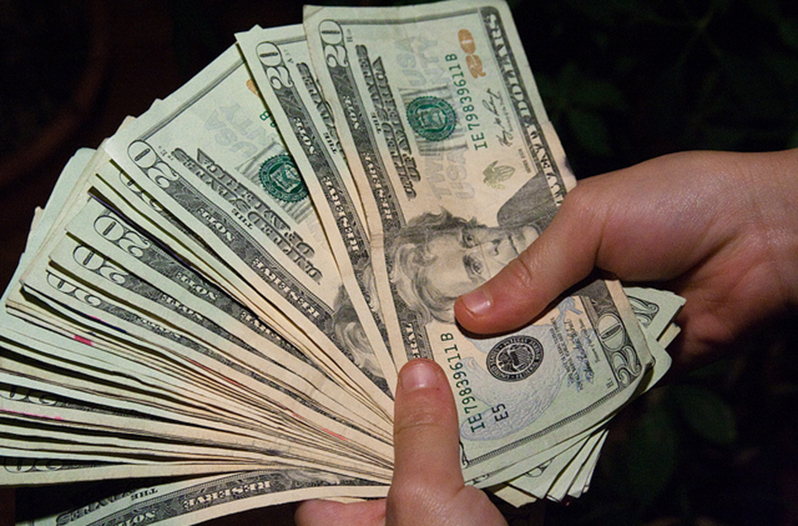Mr. Kim, who lives in Las Vegas, was looking for a private currency exchange but couldn’t get his $30,000 back.
“I saw that my Korean account had been deposited with KRW, and I paid the private currency exchanger $30,000 to complete the transaction,” Kim said. “However, my Korean account was frozen due to its involvement in a crime, and I couldn’t retrieve the money. I could not get my $30,000 back from the scammer,” Kim added.
Recently, the number of Korean victims falling for currency exchange scams has increased, prompting the need for caution.
According to the Korean Consulate General in Los Angeles on July 20, there have been two cases of large-sum currency exchange scams in the past month. Due to the high exchange rate and the increasing number of travelers, scammers have used the lure of ‘cheap private currency exchange’ to defraud large amounts of money. In particular, scammers make their targets feel as safe as possible and then disappear with the money.
First, scammers approach victims through posts on websites frequented by Koreans looking for private currency exchanges. Some scammers post on these websites, claiming to be looking for people interested in private trading, with the promise of a cheaper exchange rate than the market.
While there are no guarantees of credibility in private currency exchange, it remains a popular option for some Koreans due to the low exchange rates and time savings. Unfortunately, scammers have taken advantage of this.
“They first made me confirm that they had transferred $30,000 worth of Korean won to my account in South Korea,” said Kim, who fell victim to a currency exchange scam. “After confirming the transfer, I was no longer suspicious. I didn’t realize that I would never be able to find the money after they told me that I was involved in voice phishing.”
According to local investigators, including South Korean police, the scammer used voice phishing to trick other victims into depositing money into Kim’s South Korean account. When Kim handed over the dollars to the scammer in the U.S., he was accused of participating in the scam.
Kyunghan Kang, a police consul at the Consulate General of the Republic of Korea, warns that if funds from a voice phishing scam end up being deposited into a victim’s account in a currency exchange scam, the account is likely to be frozen, and the money cannot be reclaimed.
He emphasizes that this type of scam is not the typical currency exchange fraud but rather a more advanced one. To safeguard against such risks, individuals should ensure they transfer money from the U.S. to South Korea only through authorized institutions like banks.
BY HYOUNGJAE KIM [kim.ian@koreadaily.com]





